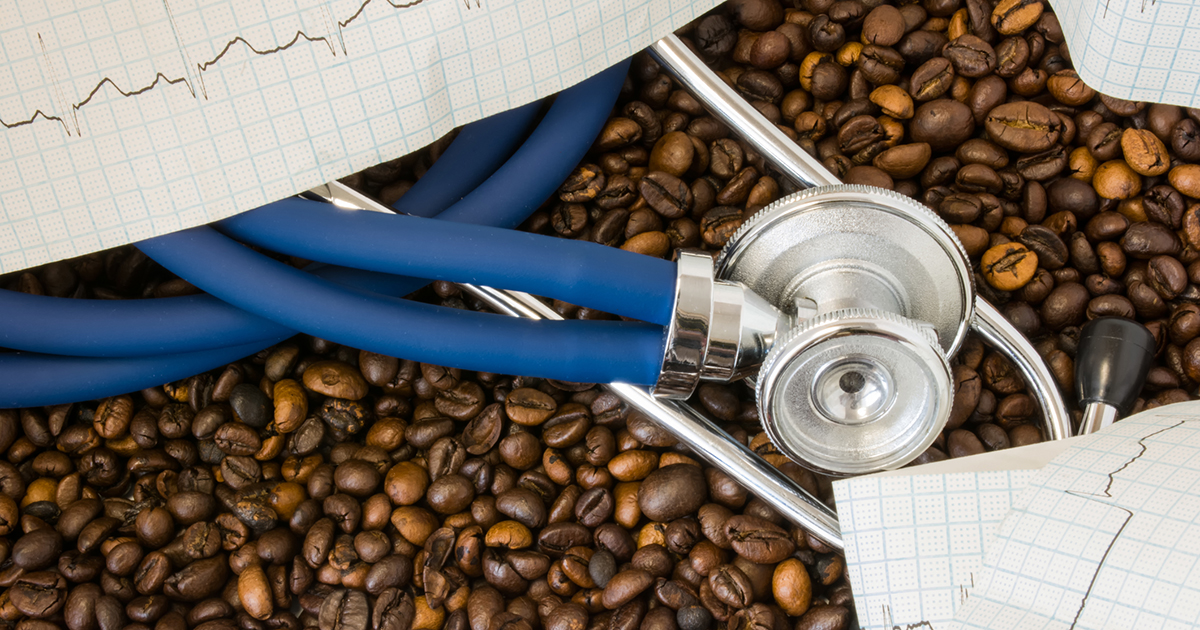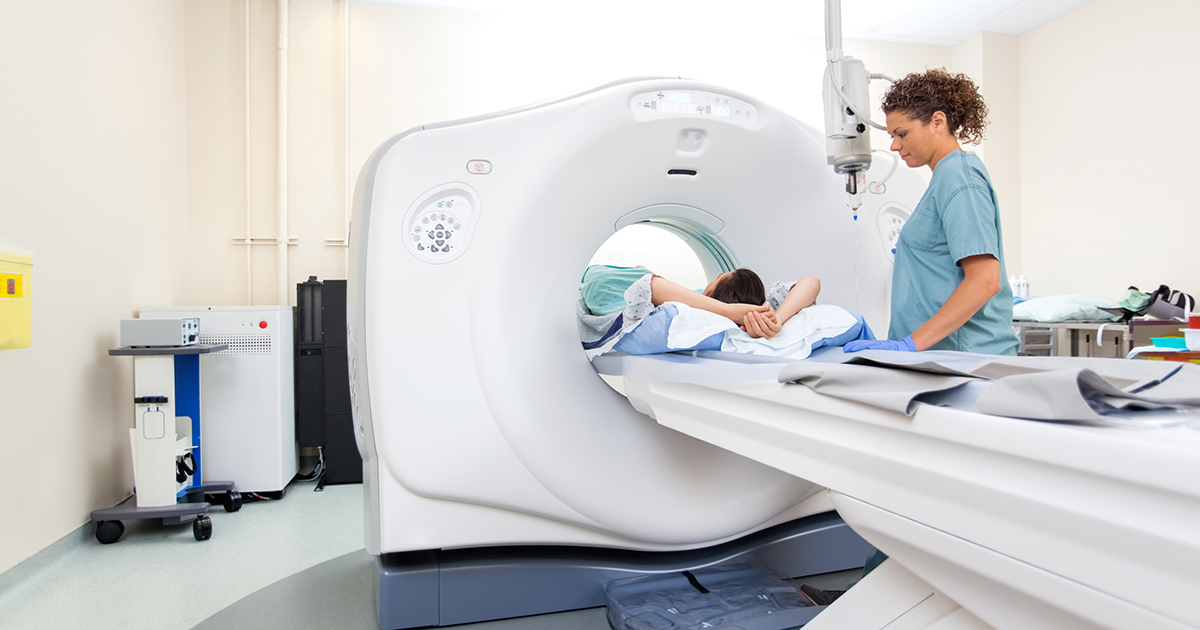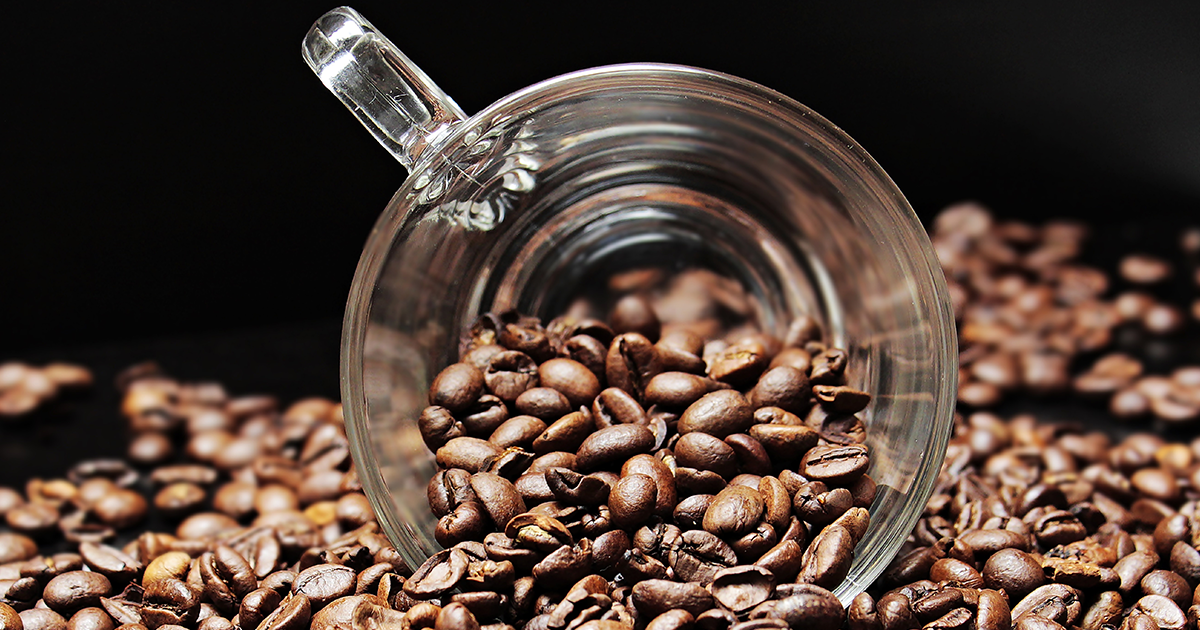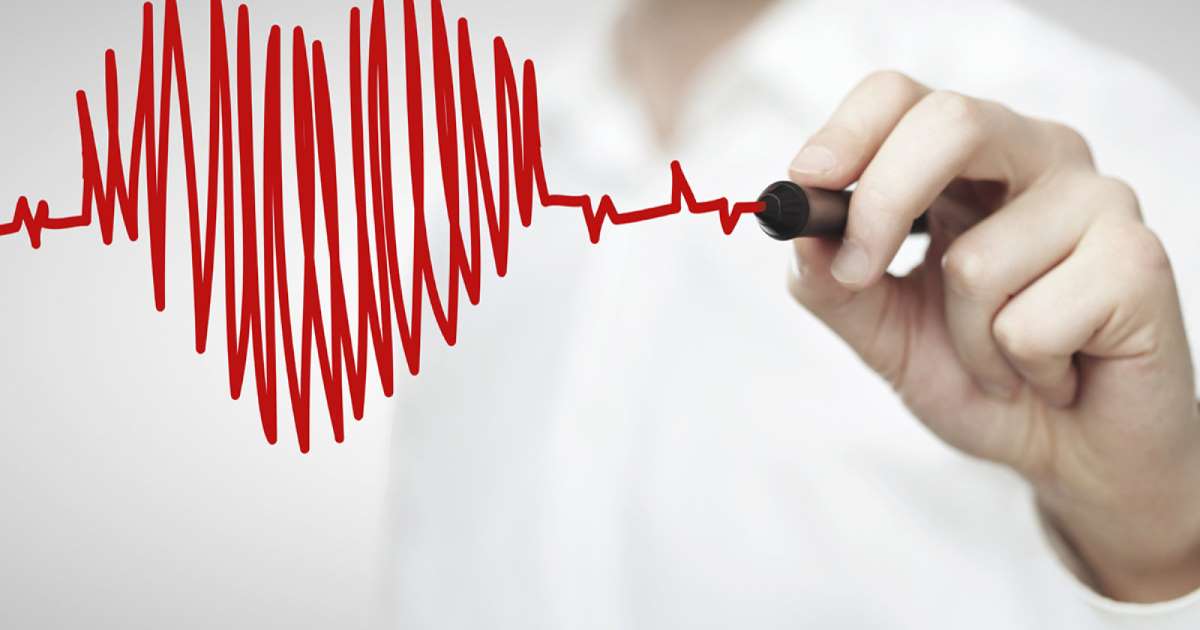3 To 5 Cups Of Coffee Could Benefit Your Heart Health
According to the 2013 National Coffee Association survey, coffee helps eighty-three percent of American adults get ready and focus each day. Although drinking coffee was once stigmatized as being as bad for health as heavy drinking and smoking cigarettes, recent studies have shown mild to moderate consumption of caffeine may actually benefit an individual's heart health. That is, as long as individuals have no heart issues to begin with. So warm up the cup, and check out all the potential benefits of drinking three to five cups a day.
Coffee's Heart Benefits

A Harvard University study published in 2015 discovered individuals who drink three to five cups of coffee each day are less likely to die from heart disease and stroke than those who drink little coffee, or none at all. However, those who drink more than five cups per day did not have any change in risk.
Similarly, in an analysis in 2013, researchers concluded those who drink coffee in moderation are less likely to develop cardiovascular disease than individuals who do not. The review showed those who drank three to five cups per day received the most considerable amount of protection and were least likely to develop heart disease or heart failure.
How Caffeine Affects Blood Pressure

A twelve-year study of over one-thousands patients with high blood pressure between the ages of eighteen and forty-five found those who drank four or more cups of coffee each day were four times more likely to have a heart attack or stroke. It is known that caffeine can cause a short and dramatic increase in blood pressure. However, there is not enough adequate information on subjects not already affected by high blood pressure.
There are quite a few ways high blood pressure can be treated at home. A standard home blood pressure monitor can be used to gauge personal caffeine tolerance and its effects on blood pressure. Test and record numbers before and after a morning coffee, and after a week of drinking significantly fewer caffeinated-beverages, try the test once again. It has been recommended that if individuals decide to give up caffeine, for them to gradually lower their intake to avoid symptoms of withdrawal.
How Caffeine Affects Heart Rhythm

A review of studies published in 2013 that included over 115,000 individuals discovered drinking caffeinated beverages did not raise the risk of irregular heartbeats. However, despite these claims, many physicians still advise patients with irregular heartbeats, namely heart arrhythmias, to limit or avoid caffeinated beverages altogether.
Patients with a heart arrhythmia should switch to decaf coffee to limit the adverse effects. Some other lifestyle changes include getting regular exercise, a right amount of sleep, following a healthy diet, drinking alcohol in moderation, and losing weight if overweight or obese. It is also recommended to avoid energy drinks with caffeine entirely, as they have high doses of caffeine as well as herbal extracts that are potentially dangerous to patients with heart arrhythmias.
Coffee And Calcium Build Up

Due to a lot of conflicting evidence on the health benefits and risks of consuming coffee, a study was conducted in Korea amongst 25,138 men and women. The average age of the participants was forty-one, and none had shown any signs of heart disease.
After the participants reported their lifestyle habits, such as smoking, alcohol, food, and coffee consumption, they were given CT scans to discover how much calcium was in their coronary arteries. Calcium is not usually found in the coronary arteries, and its existence can be an early indication of coronary artery disease (CAD) and coronary heart disease (CHD). CHD is a condition in which calcium builds up in the arteries and over time, can harden or break open, causing a reduction in blood flow or clots that can result in heart attacks. The CT scans confirmed none of the participants had CHD, but more than thirteen percent had calcium in their coronary arteries. However, the study found those who drank three to five cups of coffee per day had forty percent less calcium than those who did not drink coffee.
Drink Three To Five Cups Per Day

There are many health benefits to be found at the bottom of a cup of coffee and even more after three or five cups. Aside from lowering the amount of calcium buildup in the coronary arteries and reducing the risk of heart attacks and stroke, three to five cups of coffee can also lower the risk of liver disease and some cancers. It is suspected many of the health benefits of coffee and caffeine are due to the antioxidants and antifibrotics they contain, which prevent and slow damage to cells.
Something to keep in mind is many other foods and drinks contain caffeine. So how much caffeine is safe to consume in a day? Four hundred milligrams (mg) or less seems to be the favored amount for healthy individuals. Keep in mind a cup of coffee contains one hundred to 140 mg of caffeine, a cup of tea contains seventy-five mg, a can of pop contains forty mg, a 250 milliliter can of an energy drink may contain up to eighty mg, and chocolate bars generally contain ten to twenty-five mg.
High In Antioxidants

Multiple studies have shown coffee may cause improvements in cardiovascular health and even lower the risk for heart disease. This is mostly due to the antioxidants coffee contains, including chlorogenic acid, caffeic acid, melanoidins (brown pigments), and polyphenols. These antioxidants are known for reducing free radical activity, but they also hold pharmacological effects. For instance, studies have shown caffeic acid and chlorogenic acid act as cardioprotective agents by reducing blood pressure and reducing the risk for cardiovascular disease. Caffeic acid has also been shown to reduce inflammation enzymes, which can also lower the risk for cardiovascular disease. Another heart-protective benefit from polyphenols (bioactive plant compounds) found in coffee is the reduction in blood clots due to the lowering of a protein linked to them.
Boosts Exercise

While the stimulant effects derived from the caffeine in coffee work to improve cognition and physical performance when used in moderation, coffee contains other chemicals that may have beneficial effects during exercise. These chemicals have been shown to have positive effects on heart health and glucose regulation. Due to these effects, coffee boosts exercise performance and help reduce exercise-induced muscle damage. For instance, a phytochemical (bioactive plant chemical) known as chlorogenic acid helps improve blood flow and lower blood pressure. This can be beneficial for the heart during exercise as relaxed blood vessels help the heart transport oxygen and glucose efficiently. Studies have also shown chlorogenic acid increases fat metabolism in the liver. This may be beneficial for exercising when blood glucose levels are low.
Caffeine Promotes Protection And Repair Of Heart Muscle

Studies have shown caffeine promotes protection and repair of the heart muscle and cardiovascular cells. It does this is by increasing the movement of a regulatory protein (p27) into the mitochondria of cardiovascular cells. P27 has been noted to promote migration of endothelial cells (the cells that line the interior of blood vessels) and protect heart muscle cells from cellular death. P27 also triggers the conversion of fibroblasts, which are collagen-producing cells, into cells that contain contractile fibers. This increase in P27 helps to protect cardiovascular cells and repair the heart muscle after damage.
